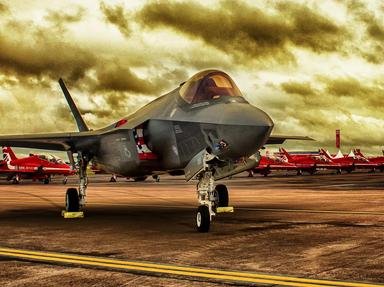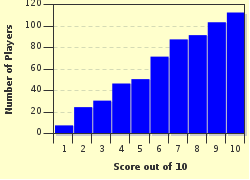Quiz Answer Key and Fun Facts
1. This man is most closely associated with India. He was born near the town of Market Drayton in Shropshire. He began his career as a clerk but was given the rank of Ensign and despite no formal military training, reached the rank of Major General. Who are we talking about?
2. This man was a contempory of Robert Clive. He was born in North Yorkshire and joined the merchant navy as a teenager and later transferred to the Royal Navy in 1755. He saw service in the Seven Years War and was responsible for mapping much of the entrance to the Saint Lawrence River. He travelled extensively in the southern oceans and almost reached Antarctica. Who was this naval man?
3. During the 16th Century, most navy ships were privateers, privately owned ships given 'letters of marque ' by their country to attack foreign warships. The person this question relates to was such a man. Born in Devon, he made several voyages to the Americas. He was a favourite of Elizabeth I, and died and was buried at sea in 1596. Which famous sailor are we discussing?
4. For our next military hero we move forward to the 20th century. This man was born in India in 1918 to British parents and came to Britain in 1921. During World War II he was one of the most experienced pilots in Bomber Command. He led a raid that had the code name 'Operation Chastise', and was awarded several medals including the Victoria Cross. Who was this brave pilot?
5. Arthur Wellesley, 1st Duke of Wellington and defeater of Napoleon had many military honours bestowed upon him. At his death his full title in the UK was Field Marshal His Grace The Duke of Wellington, KG, GCB, GCH, PC, FRS.
In the Netherlands though he was called His Highness The Prince of Waterloo.
6. The subject of our next question about UK military figures was born on March 18th 1893. In 1915, he enlisted in a rifle company and in 1917, was commissioned as a second lieutenant in The Manchester Regiment. A renowned war poet, he was killed in action just 7 days before the Armistice was signed. Can you name this man who was posthumously promoted 24 hours after his death?
7. This military man served his country in various campaigns. He served at the Battle of Falkirk and also Culloden. He is best remembered though for his exploits in the North American continent. He is named in the opening lines of the song 'The Maple Leaf Forever'. Who is the man whose exploits are also commemorated in Derbyshire, near Matlock Bath?
8. Our next military man is somewhat of an unsung hero. He was born to a mother who was a member of the Plymouth Bretheren and was brought up in a strict religious household. His early career took him to Sudan where his uncle was Governor General. His main claim to fame though, was in Burma during World War II, where he established a special unit. Name him.
9. This naval man is, possibly, one of Britain's best known national heroes. He was born in 1758, and after his death was brought home pickled in a barrel of brandy. He is, as of April 2008, one of only 5 non Royals to be given a state funeral. What was his name?
10. For our final military hero, we return to the 20th century. This man, a member of the Parachute Regiment, was born in Putney, London. His early life was reasonably privileged, and after leaving school he went to the Royal Military Academy and was commissioned into the Devon and Dorset Regiment. Later in his career he transferred to the Parachute Regiment reaching the rank of Lieutenant Colonel. For his actions in a certain campaign, he was awarded a posthumous Victoria Cross. Who is our last hero?
Source: Author
romeomikegolf
This quiz was reviewed by FunTrivia editor
trident before going online.
Any errors found in FunTrivia content are routinely corrected through our feedback system.

